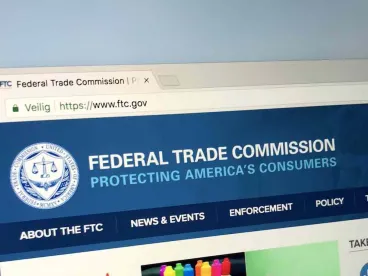Assessing the privacy and cybersecurity practices of third-party service providers is critical not only for employee personal information, but also for confidential and personal information pertaining to an organization’s business and its clients, customers, patients, students, etc. The Federal Trade Commission (FTC) announced a settlement on December 15 with a financial institution that it claimed failed to oversee the data security practices of one of its third-party service providers as required under the Gramm-Leach Bliley Act’s Safeguards Rule.
The Safeguards Rule requires financial institutions to develop, implement, and maintain a comprehensive information security program. As part of that program, financial institutions must oversee their third-party vendors, by ensuring they are capable of implementing and maintaining appropriate safeguards for customer information, and requiring them to do so by contract. The FTC alleged the financial institution in this case failed to do this.
Oversight of vendors is a critical part of any comprehensive data security program, particularly where those vendors can put sensitive consumer data at risk,” said Andrew Smith, Director of the FTC’s Bureau of Consumer Protection. “If you’re a financial company, vendor oversight is not just a good idea, it’s the law.”
In this case, the FTC alleges the financial institution’s vendor, which performed text recognition scanning on mortgage documents, stored the contents of the documents on a cloud-based server in plain text, without any protections to block unauthorized access, such as requiring a password or encrypting the information. And, according to the FTC, the financial institution (i) failed to adequately vet the vendor at issue and other vendors; (ii) did not have safeguard requirements in all vendor contracts; and (iii) did not conduct risk assessments of all of its third-party vendors, as required under the Safeguards Rule. Unfortunately, the complaint claims the server was accessed dozens of times and the documents on the server contained sensitive information about mortgage holders and others, such as names, dates of birth, Social Security numbers, loan information, credit and debit account numbers, drivers’ license numbers, or credit files.
It is important to note that similar statutory and regulatory requirements exist at the state level and at the federal level outside of the financial services industry. Here are some examples:
-
Under HIPAA, covered entities that work with certain third parties, known as business associates, must enter into “business associate agreements” setting out extensive contractual obligations on the business associate for privacy and security, which also apply directly to the business associate.
-
The New York Stop Hacks and Improve Electronic Data Security Act (SHIELD Act) requires “[a]ny person or business which owns or licenses computerized data which includes private information” of a resident of New York to “select[] service providers capable of maintaining appropriate safeguards, and require[] those safeguards by contract.”
-
Businesses subject to the data security regulations in Massachusetts, 201 CMR 17.00, must oversee service providers by (i) taking reasonable steps to select and retain those that are capable of maintaining appropriate security measures to protect such personal information consistent with the Massachusetts regulations and any applicable federal regulations, and (ii) requiring such service providers by contract to implement and maintain such appropriate security measures.
-
Several other states have similar requirements, including California, Colorado, Oregon, and Rhode Island.
The FTC’s proposed settlement requires the financial institution to, among other things:
-
undergo biennial assessments of the effectiveness of its data security program by an independent organization, which the FTC has authority to approve.
-
have a senior company executive annually certify the institution is complying with the final FTC order.
-
report any future data breaches to the FTC within 10 days of notifying other federal or state government agencies.
We discussed here some steps organizations could take to assess their third-party service providers’ capabilities concerning privacy and data security. Of course, these are not the only steps that an organization might include in a vendor management program. Those steps would be a function of the organization’s own risk assessment of the nature and extent of the sharing and processing of sensitive data it engages in with third-party service providers. Of course, at a minimum, any organization should be sure the master services agreement with the vendor includes a requirement that reasonable safeguards concerning personal information be maintained by the vendor. Regardless of the actual steps taken to address this risk, organizations should be regularly assessing the privacy and cybersecurity risks presented by third-party service providers and how to address them. And, remember that as many such organizations are themselves service providers, they too may find themselves under increased scrutiny in this regard.




 />i
/>i

